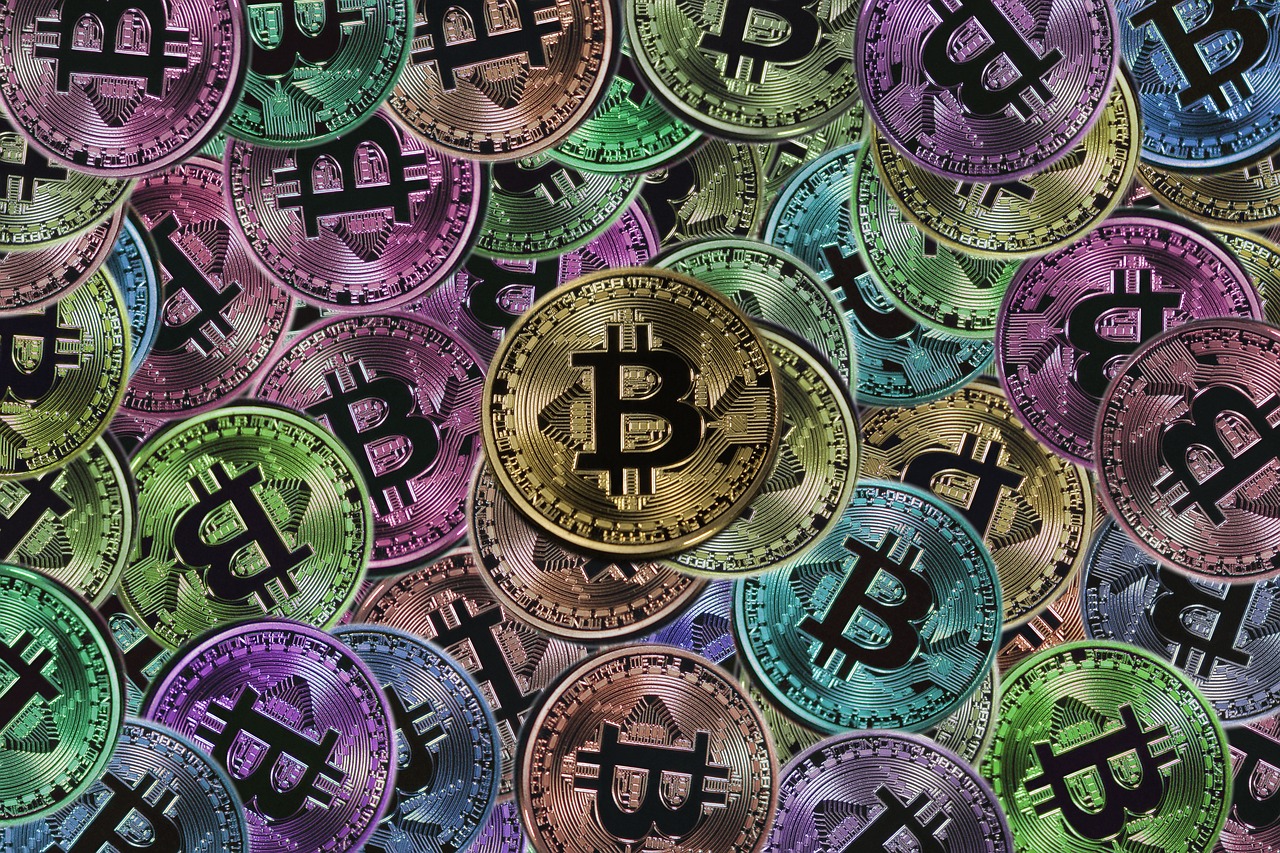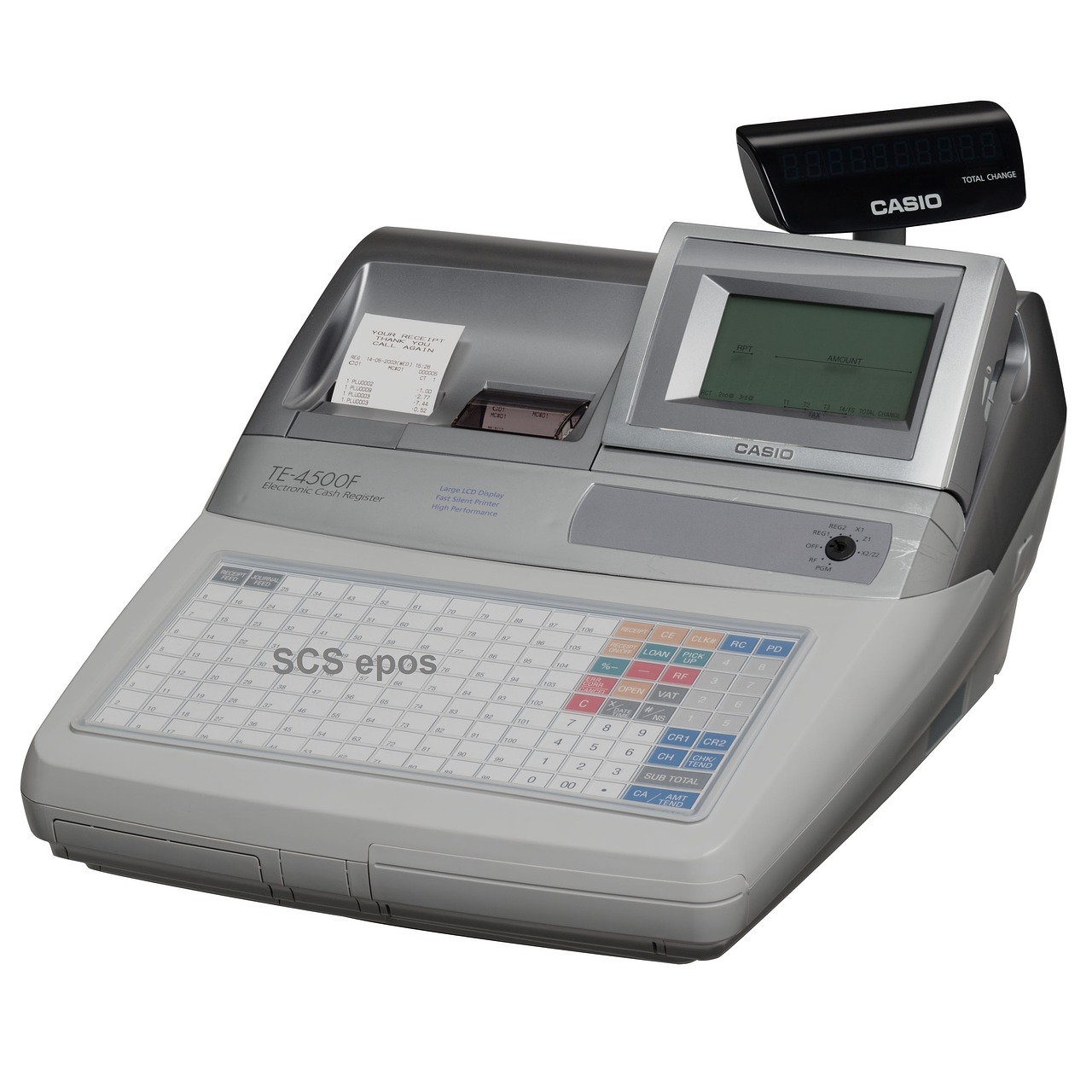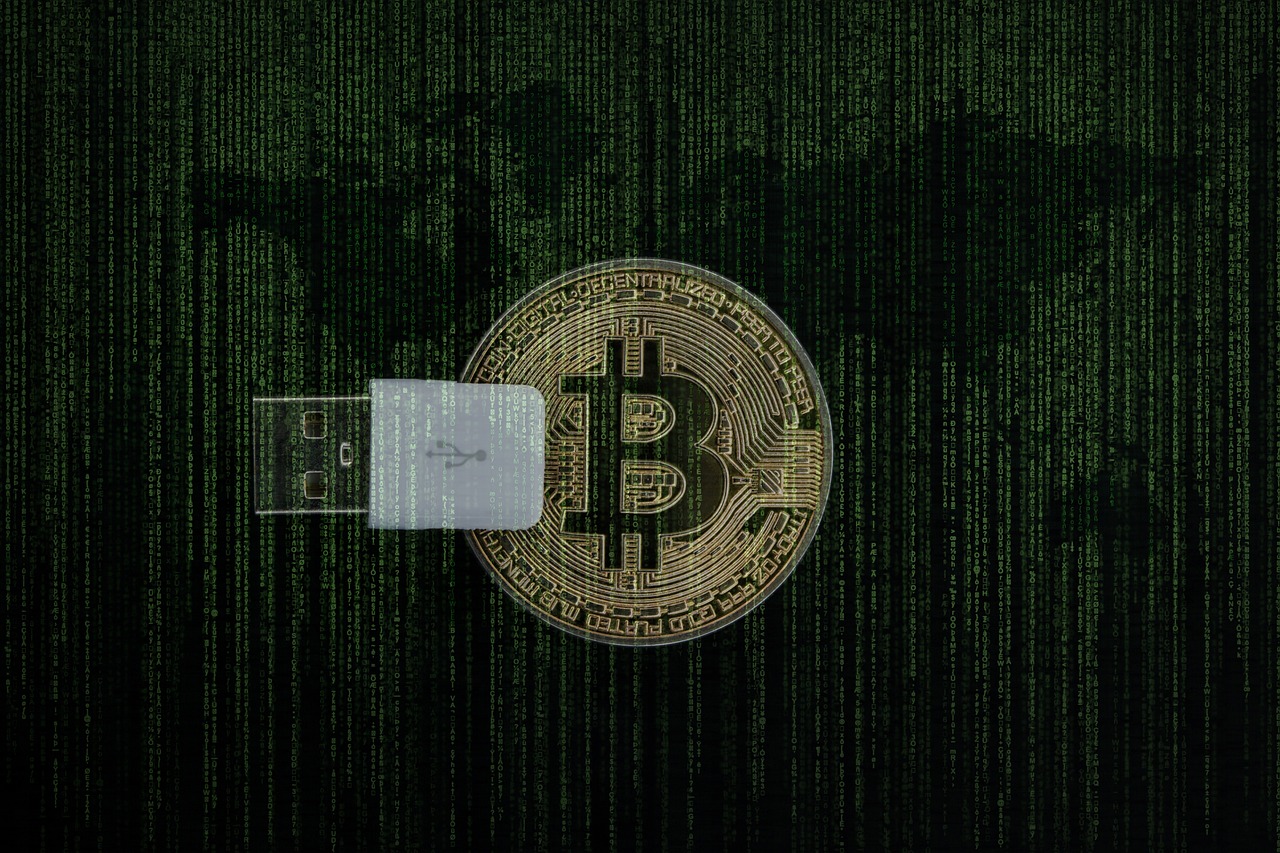Bitcoin Cash - A Look at Its Evolution
Welcome to the intriguing world of Bitcoin Cash, a cryptocurrency that has made waves since its inception. Born from a split with Bitcoin in 2017, Bitcoin Cash represents a fascinating chapter in the ongoing narrative of digital currencies. But what exactly led to this separation? At its core, the split was fueled by differing opinions on how to tackle the challenges of scalability and transaction fees. While Bitcoin's community leaned towards a more conservative approach, advocating for smaller blocks to maintain decentralization, a faction of the community believed that larger blocks were essential for accommodating a growing number of transactions. This divergence in philosophy set the stage for the birth of Bitcoin Cash.
As we dive deeper into the evolution of Bitcoin Cash, it's essential to recognize its significance in the broader cryptocurrency landscape. It not only serves as an alternative to Bitcoin but also aims to fulfill the original vision of Bitcoin as a peer-to-peer electronic cash system. With its larger block sizes and lower transaction fees, Bitcoin Cash seeks to provide a more user-friendly experience for everyday transactions. Imagine trying to buy a cup of coffee with Bitcoin; if the transaction fees are sky-high, it becomes impractical. Bitcoin Cash steps in to solve this problem, making it a compelling option for merchants and consumers alike.
Throughout its journey, Bitcoin Cash has undergone several key developments that have shaped its identity. From the initial fork to the implementation of various upgrades aimed at improving scalability and transaction speed, each step has been crucial in defining its role in the cryptocurrency ecosystem. The community surrounding Bitcoin Cash is vibrant and active, continuously working towards refining the protocol and enhancing user experience. This collaborative spirit is vital in navigating the ever-evolving landscape of digital currencies.
In this article, we will explore the origins of Bitcoin Cash, its unique features, the community that supports it, and its market performance. We’ll also delve into how it compares to Bitcoin and examine the growing acceptance among merchants. So, buckle up as we embark on this journey through the evolution of Bitcoin Cash!

The Origins of Bitcoin Cash
Bitcoin Cash emerged from a contentious split from Bitcoin in 2017, driven by differing philosophies on scalability and transaction fees. This split, often referred to as a "hard fork," was not just a technical divergence but a philosophical one, highlighting the ongoing debate within the cryptocurrency community about how best to scale a digital currency for mass adoption.
To understand the origins of Bitcoin Cash, we must first delve into the context surrounding Bitcoin's early days. Initially, Bitcoin was hailed as a revolutionary form of money, enabling peer-to-peer transactions without the need for intermediaries like banks. However, as its popularity surged, so did the number of transactions, leading to congestion on the network. This congestion resulted in longer confirmation times and skyrocketing fees, which frustrated users and merchants alike.
In response to these challenges, two distinct camps emerged within the Bitcoin community. On one side were the "block size increase" advocates, who argued that increasing the size of each block would allow more transactions to be processed at once, thereby alleviating congestion. On the other side were those who favored implementing second-layer solutions like the Lightning Network, which aimed to keep the block size small while allowing for off-chain transactions.
As discussions intensified, it became clear that a consensus could not be reached. In August 2017, the Bitcoin Cash hard fork was executed, resulting in the creation of a new cryptocurrency: Bitcoin Cash (BCH). This new coin inherited the original Bitcoin code but made a significant change by increasing the block size limit from 1MB to 8MB. This decision was rooted in the belief that larger blocks would facilitate faster transactions and lower fees, positioning Bitcoin Cash as a more practical alternative for everyday use.
In the wake of its creation, Bitcoin Cash quickly garnered attention and support from various segments of the cryptocurrency community. The new coin was championed by notable figures, including Roger Ver, who became one of its most vocal advocates. The community surrounding Bitcoin Cash emphasized its usability for transactions, aiming to make it a viable option for merchants and consumers alike.
Despite the initial excitement, Bitcoin Cash's journey has not been without its challenges. The split from Bitcoin led to ongoing debates and rivalries within the cryptocurrency space, with each faction defending its vision for the future of digital currency. As Bitcoin Cash continued to evolve, it faced scrutiny regarding its adoption and market performance, prompting discussions about its long-term viability.
In summary, the origins of Bitcoin Cash are steeped in a rich history of ideological conflict and technical innovation. Its emergence as a separate entity from Bitcoin reflects the diverse opinions within the cryptocurrency community on how best to achieve scalability and usability. As we explore its evolution further, it becomes evident that Bitcoin Cash is not just a byproduct of Bitcoin's challenges but a unique player in its own right, with aspirations to redefine how we think about money in the digital age.

Key Features of Bitcoin Cash
Bitcoin Cash, often referred to as BCH, stands out in the crowded cryptocurrency landscape due to its unique features that cater to both users and merchants. At its core, BCH was designed to address some of the limitations that its predecessor, Bitcoin, faced, particularly regarding transaction speed and fees. One of the most significant features of Bitcoin Cash is its larger block size, which allows for more transactions to be processed simultaneously. This is a game-changer, especially during times of high demand when networks can become congested. Imagine a highway with multiple lanes versus a single lane; the more lanes you have, the more cars can travel efficiently without getting stuck in traffic. This analogy perfectly encapsulates the advantage of Bitcoin Cash's increased block size.
With larger blocks, Bitcoin Cash can handle a greater volume of transactions per second, which translates to faster confirmation times for users. In practical terms, this means that when you send BCH to someone, you won't be left waiting for ages to see that transaction confirmed. Instead, it happens almost instantaneously, enhancing the overall user experience. Furthermore, this efficiency comes with lower transaction fees. Users can enjoy minimal costs when sending or receiving funds, making BCH an attractive option for everyday transactions. Think about it: would you rather pay a hefty toll on that highway or zip through without breaking the bank? The latter is what Bitcoin Cash aims to provide.
Another crucial aspect of Bitcoin Cash is its commitment to scalability solutions. As the cryptocurrency gains popularity, the demand for faster and cheaper transactions continues to grow. To address this, Bitcoin Cash developers have implemented various strategies to maintain network efficiency. For instance, they have introduced features like Adaptive Block Size, which allows the network to dynamically adjust to changes in transaction volume. This adaptability ensures that users are not left in a lurch, even during peak times.
Scalability is not just a buzzword for Bitcoin Cash; it's a central theme that drives its development. The community has actively sought ways to enhance transaction throughput while ensuring that the network remains efficient. This is vital for maintaining the trust of users and merchants alike. By focusing on scalability, Bitcoin Cash aims to position itself as a viable alternative to traditional payment systems, which often struggle with congestion and high fees.
One of the hallmark features of Bitcoin Cash is its increased block size. Initially, Bitcoin had a block size limit of 1MB, which often resulted in delayed transactions during periods of high activity. Bitcoin Cash, however, raised this limit significantly, allowing for larger blocks of up to 32MB. This expansion means that more transactions can be included in each block, effectively reducing the chances of congestion. For users, this translates to quicker transaction times and a smoother experience overall.
Improving transaction speed has been a priority for Bitcoin Cash since its inception. The development team has worked tirelessly to refine the protocol and introduce enhancements that contribute to a more efficient user experience. For instance, by optimizing the way transactions are processed and confirmed, BCH can deliver results in a fraction of the time compared to its competitors. This commitment to speed is crucial for attracting both casual users and businesses looking to adopt cryptocurrency for daily transactions.
In summary, the key features of Bitcoin Cash—including its larger block sizes, lower fees, and focus on scalability—position it as a formidable player in the cryptocurrency market. As adoption continues to rise, these elements will likely play a critical role in shaping its future and solidifying its place in the digital currency ecosystem.
- What is Bitcoin Cash? Bitcoin Cash is a cryptocurrency that emerged from a split from Bitcoin in 2017, designed to provide faster transactions and lower fees.
- How does Bitcoin Cash differ from Bitcoin? The primary difference lies in the block size; Bitcoin Cash has a larger block size, allowing for more transactions to be processed simultaneously.
- Why are transaction fees lower with Bitcoin Cash? The larger block sizes mean that more transactions can be processed at once, reducing competition for space and thus lowering fees.
- Is Bitcoin Cash widely accepted? Yes, many merchants and businesses are increasingly accepting Bitcoin Cash as a form of payment, enhancing its viability as a currency.

Scalability Solutions
When it comes to cryptocurrencies, scalability is often the elephant in the room. As more users flock to a network, the ability to handle increased transaction loads without compromising speed or efficiency becomes paramount. Bitcoin Cash (BCH) has embraced this challenge head-on, implementing a range of solutions designed to enhance its scalability. The journey of Bitcoin Cash is not just about being a faster alternative to Bitcoin; it’s about creating a sustainable ecosystem that can support a growing user base and a myriad of transactions.
One of the most significant strategies employed by Bitcoin Cash is the increase in block size. Originally, Bitcoin had a block size limit of 1MB, which often led to congestion during peak times. Bitcoin Cash raised this limit to 8MB and beyond, allowing for a greater number of transactions to be processed in each block. This increase is akin to widening a highway to accommodate more cars during rush hour. By reducing bottlenecks, Bitcoin Cash has positioned itself as a viable option for everyday transactions, making it easier for users to send and receive funds without the frustration of delays.
Another key aspect of Bitcoin Cash’s scalability efforts revolves around transaction speed improvements. The network has implemented various protocol enhancements that streamline the transaction process, making it quicker and more efficient. For instance, the introduction of Adaptive Block Size allows the network to dynamically adjust the block size based on current demand. This adaptability ensures that the network remains responsive, catering to fluctuations in transaction volume without sacrificing performance.
Moreover, Bitcoin Cash has also explored the integration of smart contracts and other advanced technologies to further enhance its capabilities. By leveraging these innovations, BCH aims to provide users with a more versatile platform that can handle not just peer-to-peer transactions but also complex financial operations. This evolution is crucial, as it positions Bitcoin Cash as not just a currency but a comprehensive financial ecosystem.
In addition, the community behind Bitcoin Cash plays a vital role in its scalability solutions. Through collaborative discussions and governance, developers and users alike contribute to the ongoing evolution of the network. This community-driven approach fosters innovation and ensures that the network can adapt to new challenges and opportunities as they arise.
In summary, Bitcoin Cash has taken a proactive stance on scalability by increasing block sizes, improving transaction speeds, and embracing advanced technologies. These solutions not only enhance user experience but also solidify BCH’s position in the competitive cryptocurrency landscape. As the demand for faster and more efficient transactions continues to grow, Bitcoin Cash stands ready to meet those demands head-on, ensuring its relevance and utility for years to come.
- What is the block size of Bitcoin Cash? Bitcoin Cash started with an 8MB block size limit, which can be increased further based on network needs.
- How does Bitcoin Cash improve transaction speed? Through protocol enhancements and adaptive block size, Bitcoin Cash can process transactions more quickly than its predecessors.
- Is Bitcoin Cash suitable for everyday transactions? Yes, its scalability solutions make it an excellent choice for everyday payments, with lower fees and faster processing times.

Block Size Increase
The is one of the most significant changes that set Bitcoin Cash apart from its predecessor, Bitcoin. Initially, Bitcoin had a block size limit of 1MB, which often led to congestion during peak transaction times. Imagine a bustling highway with only a single lane; during rush hour, traffic comes to a standstill. This is essentially what happened with Bitcoin transactions. Users faced delayed confirmations and higher fees, making it less practical for everyday use. In contrast, Bitcoin Cash increased the block size to 8MB at its inception, and later to 32MB, allowing for a greater number of transactions to be processed simultaneously. This expansion is akin to adding multiple lanes to that highway, significantly easing the flow of traffic.
With this larger block capacity, Bitcoin Cash can handle thousands of transactions per second, which is crucial for its goal of becoming a widely used currency. For instance, during high-demand periods, users can still enjoy low fees and quick confirmations, enhancing the overall user experience. It’s not just about speed; it’s about making transactions feasible for everyone, from casual users sending small amounts to businesses processing significant sales. The implications of this are profound, as it positions Bitcoin Cash as a viable alternative to traditional payment methods.
To illustrate the impact of the block size increase, consider the following table that compares transaction times and fees between Bitcoin and Bitcoin Cash:
| Feature | Bitcoin | Bitcoin Cash |
|---|---|---|
| Block Size Limit | 1MB | 32MB |
| Average Transaction Fee | $1-$3 | $0.01-$0.10 |
| Average Confirmation Time | 10-30 minutes | 1-10 minutes |
This table highlights how the increased block size of Bitcoin Cash not only allows for faster transaction processing but also significantly reduces costs for users. By accommodating a larger volume of transactions, Bitcoin Cash aims to facilitate everyday purchases, making it a more practical choice for both consumers and merchants.
Moreover, the community behind Bitcoin Cash is continuously exploring ways to optimize this feature further. They are actively discussing potential future increases in block size and other scalability solutions to ensure that Bitcoin Cash remains a competitive player in the ever-evolving cryptocurrency landscape. The ongoing dialogue within the community reflects a commitment to maintaining efficiency and accessibility, which are essential for long-term success.
In conclusion, the block size increase is not just a technical adjustment; it represents a fundamental shift in how cryptocurrencies can operate in a real-world context. By allowing more transactions to be processed at lower costs, Bitcoin Cash is paving the way for broader adoption and usability, positioning itself as a significant contender in the digital currency arena.

Transaction Speed Improvements
When it comes to cryptocurrency, speed is of the essence. Imagine you're at a bustling café, and you want to pay for your coffee quickly. If the payment takes ages, it can be frustrating, right? This analogy perfectly describes how users feel when transactions on a blockchain network lag. Bitcoin Cash (BCH) recognized this need for speed early on and implemented several enhancements to ensure that transactions are not just fast, but also efficient.
One of the primary ways Bitcoin Cash has improved transaction speed is through its increased block size. By allowing larger blocks, BCH can process more transactions simultaneously. This means that during peak times, when the network is busy, users can still expect their transactions to be confirmed quickly. In contrast, smaller block sizes can lead to congestion, where transactions pile up like cars in a traffic jam. The larger capacity of Bitcoin Cash acts like adding more lanes to a highway, allowing for a smoother flow of transactions.
Furthermore, Bitcoin Cash has optimized its transaction processing algorithm, which plays a crucial role in enhancing speed. By streamlining the way transactions are validated and added to the blockchain, BCH minimizes the time it takes for a transaction to be confirmed. This is akin to having a fast-track line at an amusement park—those with fast passes get to enjoy the rides without the long wait. With these improvements, users can expect their transactions to be completed in just a few seconds, making BCH an attractive option for everyday transactions.
To illustrate the impact of these speed improvements, consider the following table comparing transaction times between Bitcoin and Bitcoin Cash:
| Feature | Bitcoin | Bitcoin Cash |
|---|---|---|
| Average Transaction Confirmation Time | 10 minutes | 1-2 minutes |
| Block Size | 1 MB | Up to 32 MB |
| Transactions per Second (TPS) | 7 TPS | Up to 116 TPS |
This table highlights the stark differences in performance between Bitcoin and Bitcoin Cash. With an average confirmation time of just 1-2 minutes, BCH is significantly faster than Bitcoin, making it a more practical choice for users looking for quick transactions. Additionally, the ability to handle up to 116 transactions per second means that Bitcoin Cash can accommodate a larger volume of users without compromising speed.
In summary, Bitcoin Cash's commitment to improving transaction speeds has made it a formidable player in the cryptocurrency space. By increasing block sizes and optimizing transaction processing, BCH not only enhances user experience but also paves the way for broader adoption. As more businesses and individuals recognize the benefits of faster transactions, Bitcoin Cash is positioned to play a vital role in the evolving landscape of digital currency.
- What is Bitcoin Cash? Bitcoin Cash is a cryptocurrency that emerged from a split from Bitcoin, focusing on faster transactions and lower fees.
- How does Bitcoin Cash improve transaction speed? BCH increases block sizes and optimizes its transaction processing algorithm, allowing for quicker confirmations.
- Why is transaction speed important? Fast transaction speeds enhance user experience and are crucial for real-time payments, especially in a digital economy.
- Can Bitcoin Cash handle more transactions than Bitcoin? Yes, due to its larger block size and improved processing capabilities, BCH can handle more transactions per second compared to Bitcoin.

Community and Governance
The Bitcoin Cash community is not just a group of users; it’s a vibrant ecosystem of developers, miners, traders, and enthusiasts who all play integral roles in shaping the future of the cryptocurrency. What makes this community so unique is its strong emphasis on collaboration and open dialogue. Unlike traditional corporate governance structures, Bitcoin Cash operates on a decentralized model where decisions are made collectively, often through community forums and discussions. This grassroots approach fosters a sense of ownership and accountability among participants, which is crucial for the ongoing development and success of the project.
One of the key aspects of the governance model is the ability for community members to propose changes and improvements to the protocol. This is typically done through Bitcoin Improvement Proposals (BIPs), where anyone can submit their ideas for review. The community then engages in discussions, weighing the pros and cons of each proposal. It’s a bit like a town hall meeting where everyone is invited to voice their opinions and contribute to the decision-making process. This democratic approach not only helps in refining ideas but also ensures that the changes reflect the collective will of the community.
Moreover, the community is actively involved in funding development initiatives. Many members contribute financially to support developers who are working on projects that enhance the Bitcoin Cash network. This funding model is essential because it allows for continuous improvement without relying solely on external investors or corporations. It’s like a local fundraiser where everyone pitches in to support a cause they believe in, ensuring that the project remains true to its original vision.
However, governance isn’t without its challenges. The decentralized nature of Bitcoin Cash can lead to disagreements within the community. Different factions may have varying opinions on the direction of the project, which can sometimes result in heated debates. But rather than tearing the community apart, these discussions often lead to innovative solutions and compromises that ultimately strengthen the network. It’s a reminder that in the world of cryptocurrencies, diversity of thought can be a powerful catalyst for progress.
As Bitcoin Cash continues to evolve, the role of the community will only grow more significant. With increasing adoption and market relevance, the collective efforts of its members will be crucial in navigating the complexities of the cryptocurrency landscape. The ongoing dialogue among community members ensures that Bitcoin Cash remains adaptable and responsive to the needs of its users.
- What is Bitcoin Cash? Bitcoin Cash is a cryptocurrency that emerged from a fork of Bitcoin in 2017, aimed at improving transaction speed and reducing fees.
- How does the governance of Bitcoin Cash work? Governance is decentralized, with community members proposing and discussing changes through Bitcoin Improvement Proposals (BIPs).
- Why is community involvement important for Bitcoin Cash? Community involvement ensures that development reflects the needs and desires of users, fostering a sense of ownership and accountability.
- What challenges does the Bitcoin Cash community face? The community can experience disagreements on project direction, but these discussions often lead to innovative solutions.

Market Performance and Adoption
Bitcoin Cash has had a rollercoaster journey in the cryptocurrency market since its inception. Its market performance is a reflection of its adoption and acceptance among users and merchants alike. As we dive into the numbers, it's essential to understand the factors that have influenced its price trends, trading volume, and overall market position. Over the years, Bitcoin Cash has experienced significant volatility, with prices soaring to new heights and then plummeting just as dramatically. This characteristic is not unique to Bitcoin Cash, as the entire cryptocurrency market is known for its unpredictable nature. However, Bitcoin Cash's performance has been particularly interesting due to its unique features and the ongoing debates surrounding its value compared to Bitcoin.
One of the key indicators of Bitcoin Cash's market performance is its trading volume. High trading volumes often signify strong interest and activity among traders and investors. For instance, during periods of heightened interest in cryptocurrencies, Bitcoin Cash has seen spikes in trading volumes, reflecting increased buying and selling activity. This can be attributed to various factors, including market sentiment, news, and developments within the Bitcoin Cash ecosystem itself. To illustrate this point, let's take a look at a table showcasing Bitcoin Cash's trading volume over the past few years:
| Year | Average Daily Trading Volume (in USD) |
|---|---|
| 2018 | $500 million |
| 2019 | $300 million |
| 2020 | $450 million |
| 2021 | $1 billion |
| 2022 | $600 million |
This table highlights the fluctuations in Bitcoin Cash's trading volume, showcasing its growing popularity particularly in 2021. The increase to $1 billion in average daily trading volume that year was a significant milestone, indicating a surge in interest and investment in the cryptocurrency.
Another critical aspect to consider is the adoption of Bitcoin Cash among merchants. The acceptance of Bitcoin Cash for transactions is a vital sign of its viability as a currency. Many businesses have started to embrace Bitcoin Cash due to its faster transaction speeds and lower fees compared to Bitcoin. This shift towards merchant adoption not only enhances the usability of Bitcoin Cash but also contributes to its overall market performance. As more businesses accept Bitcoin Cash, its perceived value increases, driving demand and, consequently, its price.
To give you a clearer picture, here are some notable merchants and platforms that have adopted Bitcoin Cash:
- Overstock.com - A leading online retailer.
- Newegg - A popular e-commerce site for tech products.
- Expedia - A travel booking platform that accepts Bitcoin Cash for hotel bookings.
- CoinGate - A payment gateway that supports Bitcoin Cash transactions.
These examples illustrate that Bitcoin Cash is not just a speculative asset; it is being utilized in real-world transactions, which is a crucial factor for its long-term success. As more merchants come on board, the ecosystem surrounding Bitcoin Cash continues to expand, further solidifying its position in the competitive cryptocurrency market.
In conclusion, the market performance and adoption of Bitcoin Cash are closely intertwined. While its price may fluctuate, the underlying factors of trading volume and merchant acceptance reveal a more profound narrative of growth and potential. As the cryptocurrency landscape evolves, Bitcoin Cash's ability to adapt and thrive will play a significant role in determining its future trajectory.
- What is Bitcoin Cash?
Bitcoin Cash is a cryptocurrency that emerged from a split from Bitcoin in 2017, designed to allow for faster transactions and lower fees. - How does Bitcoin Cash differ from Bitcoin?
The primary difference lies in its block size; Bitcoin Cash has a larger block size, allowing for more transactions to be processed simultaneously. - Is Bitcoin Cash a good investment?
Like all cryptocurrencies, investing in Bitcoin Cash comes with risks. It's essential to do thorough research and consider market trends. - Where can I spend Bitcoin Cash?
Many online and brick-and-mortar businesses accept Bitcoin Cash, including major retailers and payment processors.

Comparative Analysis with Bitcoin
When diving into the world of cryptocurrencies, it’s impossible to ignore the elephant in the room: Bitcoin. While Bitcoin remains the leading digital currency, Bitcoin Cash (BCH) was born from a desire to improve upon its predecessor. The differences between the two are not just technical; they reflect fundamentally different philosophies about what cryptocurrency should be. So, how do they stack up against each other?
At its core, Bitcoin was designed as a store of value, often referred to as "digital gold." Its primary focus is on security and decentralization, which can lead to slower transaction speeds and higher fees during peak times. In contrast, Bitcoin Cash was created specifically to enhance transaction efficiency. With larger block sizes—up to 32 MB compared to Bitcoin's 1 MB—BCH can handle more transactions per block, significantly reducing congestion and fees. This fundamental difference in design leads us to several key areas of comparison:
| Feature | Bitcoin (BTC) | Bitcoin Cash (BCH) |
|---|---|---|
| Block Size | 1 MB | Up to 32 MB |
| Transaction Speed | Slower during high traffic | Faster due to larger blocks |
| Transaction Fees | Higher during peak times | Lower and more stable |
| Primary Use Case | Store of value | Medium of exchange |
In terms of market perception, Bitcoin is often viewed as the "original" cryptocurrency, leading to a sense of trust and reliability among investors. Bitcoin Cash, on the other hand, is sometimes seen as a "fork" or offshoot, which can lead to skepticism. However, BCH has made significant strides in building a robust community and gaining acceptance among merchants. The question remains: can it achieve the same level of recognition and trust as Bitcoin?
Another aspect worth considering is community support. Bitcoin has a larger and more established community, which contributes to its ongoing development and security. Bitcoin Cash, while smaller, is passionate and focused on practical applications of cryptocurrency in everyday transactions. This difference in community dynamics can affect everything from development speed to user adoption.
Ultimately, the choice between Bitcoin and Bitcoin Cash often comes down to personal preference and intended use. Are you looking for a secure store of value, or do you want a currency that functions effectively for daily transactions? As the cryptocurrency landscape continues to evolve, it will be fascinating to see how these two coins adapt and grow in their respective niches.
- What is the main difference between Bitcoin and Bitcoin Cash?
The primary difference lies in their block sizes and transaction capabilities. Bitcoin Cash allows for larger blocks, enabling faster transactions and lower fees compared to Bitcoin. - Is Bitcoin Cash a good investment?
As with any investment, it depends on market conditions and individual financial goals. Bitcoin Cash has potential for growth, especially with increasing merchant adoption. - Can I use Bitcoin Cash for everyday purchases?
Yes, many merchants are beginning to accept Bitcoin Cash as a valid form of payment due to its lower fees and faster transaction times. - How can I buy Bitcoin Cash?
You can purchase Bitcoin Cash on various cryptocurrency exchanges, such as Coinbase, Binance, and Kraken, using either fiat currency or other cryptocurrencies.

Merchant Adoption Trends
The adoption of Bitcoin Cash (BCH) by merchants is a fascinating aspect of its evolution, showcasing how cryptocurrencies are gradually integrating into everyday commerce. As businesses become more aware of the benefits of accepting digital currencies, Bitcoin Cash stands out due to its unique features that appeal to both merchants and consumers. Imagine walking into a local café and being able to pay for your coffee with a digital currency that not only promises lower transaction fees but also faster processing times. This is the reality that Bitcoin Cash aims to create.
One of the key driving forces behind the adoption of Bitcoin Cash among merchants is its ability to facilitate transactions at a fraction of the cost compared to traditional payment methods. With transaction fees often soaring in the Bitcoin network, Bitcoin Cash offers a more viable alternative, particularly for small businesses that operate on thin margins. For instance, the average transaction fee for Bitcoin Cash can be significantly lower, allowing merchants to keep more of their profits. This cost-effectiveness is a compelling reason for businesses to consider BCH as a payment option.
Moreover, the speed of transactions plays a crucial role in merchant adoption. In an age where consumers expect instant gratification, the ability to process payments quickly can enhance customer satisfaction and streamline operations. Bitcoin Cash's larger block size allows for more transactions to be processed simultaneously, reducing wait times at the checkout. This efficiency can lead to a smoother customer experience, encouraging repeat business and fostering customer loyalty.
As we look at the current trends, it's evident that the number of merchants accepting Bitcoin Cash is on the rise. According to recent statistics, there has been a notable increase in the number of businesses that have integrated BCH into their payment systems. This growth can be attributed to several factors:
- Increased Awareness: As more people learn about cryptocurrency, businesses are becoming more open to accepting it.
- Partnerships with Payment Processors: Companies like BitPay and CoinGate are making it easier for merchants to accept Bitcoin Cash.
- Consumer Demand: As customers request more options for payment, businesses are adapting to meet these needs.
In addition to traditional retail, Bitcoin Cash is also making headway in the e-commerce sector. Online platforms that cater to digital goods and services are increasingly adopting BCH, recognizing its potential to facilitate seamless transactions without the high fees associated with credit card processing. This trend is particularly appealing to digital entrepreneurs who can benefit from lower overhead costs.
Looking ahead, the future of Bitcoin Cash in the merchant landscape seems promising. As more businesses recognize the advantages of integrating cryptocurrency into their payment systems, we can expect to see an even greater proliferation of Bitcoin Cash acceptance. The growing ecosystem of merchants accepting BCH will not only enhance its legitimacy but also contribute to its overall stability and adoption in the market.
In conclusion, the trends in merchant adoption of Bitcoin Cash highlight a significant shift in how businesses view cryptocurrencies. With lower fees, faster transactions, and increasing consumer demand, Bitcoin Cash is well-positioned to become a mainstream payment option. As we continue to witness this evolution, it’s exciting to imagine a future where digital currencies are a standard part of our everyday transactions.
1. What is Bitcoin Cash?
Bitcoin Cash is a cryptocurrency that emerged from a fork of Bitcoin in 2017, aimed at improving transaction speed and reducing fees.
2. Why should merchants accept Bitcoin Cash?
Merchants can benefit from lower transaction fees, faster payment processing, and increased customer satisfaction by accepting Bitcoin Cash.
3. How can a business start accepting Bitcoin Cash?
Businesses can start accepting Bitcoin Cash by partnering with payment processors that support BCH and integrating the necessary payment systems.
4. Is Bitcoin Cash widely accepted?
While still growing, Bitcoin Cash is increasingly accepted by various merchants, especially in sectors like e-commerce and local businesses.
5. What are the future prospects for Bitcoin Cash?
The future looks promising for Bitcoin Cash as more businesses recognize its advantages, which could lead to increased adoption and stability in the market.
Frequently Asked Questions
- What is Bitcoin Cash?
Bitcoin Cash is a cryptocurrency that originated from a hard fork of Bitcoin in 2017. It was created to address issues related to scalability and high transaction fees, allowing for larger block sizes and faster transactions.
- Why did Bitcoin Cash fork from Bitcoin?
The split occurred due to differing opinions within the Bitcoin community regarding how to scale the network. Some believed that increasing the block size would be the best solution, while others preferred alternative methods like the Lightning Network.
- What are the key features of Bitcoin Cash?
Bitcoin Cash is known for its larger block sizes, which can handle more transactions per block compared to Bitcoin. This leads to lower transaction fees and faster confirmations, making it more user-friendly for everyday transactions.
- How does Bitcoin Cash improve transaction speed?
By increasing the block size limit, Bitcoin Cash allows more transactions to be processed simultaneously. This reduces the time users have to wait for their transactions to be confirmed, enhancing the overall efficiency of the network.
- What role does the community play in Bitcoin Cash?
The Bitcoin Cash community is integral to its development and governance. Decisions regarding upgrades and changes to the protocol are often made through community consensus, reflecting the collaborative nature of its governance.
- How does Bitcoin Cash perform in the market?
Bitcoin Cash's market performance can be influenced by various factors, including trading volume, investor sentiment, and its adoption rate among merchants. Analyzing these trends provides insights into its viability as a cryptocurrency.
- Is Bitcoin Cash widely accepted by merchants?
Yes, Bitcoin Cash has seen increasing acceptance among merchants, allowing customers to use it for everyday purchases. This growing trend is crucial for its long-term viability and integration into the broader economy.
- How does Bitcoin Cash compare to Bitcoin?
While both cryptocurrencies share a common origin, they differ significantly in their approach to scalability, transaction fees, and community support. Bitcoin Cash aims for faster transactions and lower fees, whereas Bitcoin focuses on being a store of value.



















